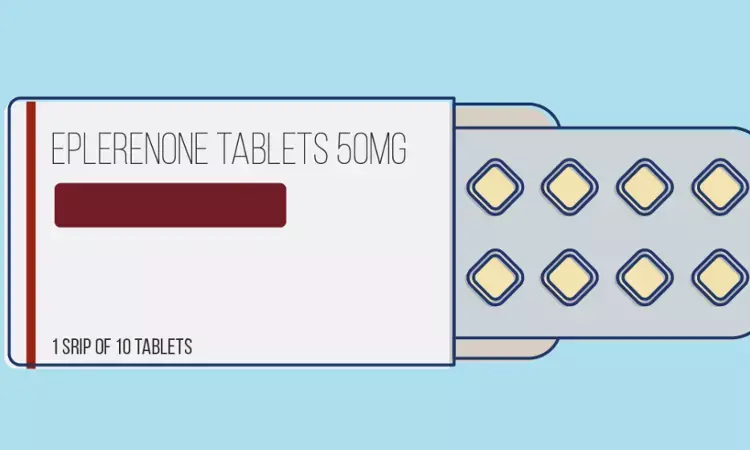- Home
- Medical news & Guidelines
- Anesthesiology
- Cardiology and CTVS
- Critical Care
- Dentistry
- Dermatology
- Diabetes and Endocrinology
- ENT
- Gastroenterology
- Medicine
- Nephrology
- Neurology
- Obstretics-Gynaecology
- Oncology
- Ophthalmology
- Orthopaedics
- Pediatrics-Neonatology
- Psychiatry
- Pulmonology
- Radiology
- Surgery
- Urology
- Laboratory Medicine
- Diet
- Nursing
- Paramedical
- Physiotherapy
- Health news
- Fact Check
- Bone Health Fact Check
- Brain Health Fact Check
- Cancer Related Fact Check
- Child Care Fact Check
- Dental and oral health fact check
- Diabetes and metabolic health fact check
- Diet and Nutrition Fact Check
- Eye and ENT Care Fact Check
- Fitness fact check
- Gut health fact check
- Heart health fact check
- Kidney health fact check
- Medical education fact check
- Men's health fact check
- Respiratory fact check
- Skin and hair care fact check
- Vaccine and Immunization fact check
- Women's health fact check
- AYUSH
- State News
- Andaman and Nicobar Islands
- Andhra Pradesh
- Arunachal Pradesh
- Assam
- Bihar
- Chandigarh
- Chattisgarh
- Dadra and Nagar Haveli
- Daman and Diu
- Delhi
- Goa
- Gujarat
- Haryana
- Himachal Pradesh
- Jammu & Kashmir
- Jharkhand
- Karnataka
- Kerala
- Ladakh
- Lakshadweep
- Madhya Pradesh
- Maharashtra
- Manipur
- Meghalaya
- Mizoram
- Nagaland
- Odisha
- Puducherry
- Punjab
- Rajasthan
- Sikkim
- Tamil Nadu
- Telangana
- Tripura
- Uttar Pradesh
- Uttrakhand
- West Bengal
- Medical Education
- Industry
High-dose eplerenone reduces urinary albumin creatinine ratio in Diabetes: Study

Researchers of Copenhagen University Hospital have found, Add on therapy of high dose eplerenone to T2D patients with a high risk of cardiovascular disease markedly reduces the urinary albumin–creatinine ratio. The findings of the study were published in Diabetes and Metabolism on September 9, 2020.
The mortality rate in T2 DM is still increased by almost a factor 2 although poly pharmacological therapy of risk factors has been recommended for years. Treatment with MR (Mineralocorticoid Receptor) antagonists in patients with primary hyperaldosteronism and systolic heart failure improves insulin resistance, myocardial function and prognosis. Further, recent evidence has suggested that aldosterone participates in the regulation of glucose and lipid metabolism, as MR expression has been identified in adipocytes. The beneficial metabolic effects of selective MR blockade has been demonstrated in several animal models. Notably, there is no available data in humans with T2DM. For this purpose, researchers of Denmark conducted a clinical trial (MIRAD trial - Mineralocorticoid Receptor Antagonist in Type 2 Diabetes) to investigate the impact of high-dose MRA (Mineralocorticoid Receptor Antagonist) on prespecified secondary endpoints—namely, change in urinary albumin–creatinine ratio (UACR) and 24-h ambulatory blood pressure.
It was a randomized, Double-blind, Placebo-controlled Study of 140 patients with T2D patients who are at high risk of or with established cardiovascular disease (CVD). The patients were randomized to either high-dose (100–200 mg) eplerenone (n=70) or a dose-matched placebo (n=70) as an add-on to background antihypertensive treatment for 26 weeks. Researchers evaluated the safety outcomes by monitoring the incidence of hyperkalaemia and kidney-related adverse events.
Key findings of the study were:
♦Baseline UACR was 17 mg/g and the researchers found about 34% decrease in UACR levels in the eplerenone group when compared with the placebo group at week 26.
♦They observed no significant decrease in 24-h systolic blood pressure (SBP) due to treatment. = 0.150). However, the observed change in 24-h SBP correlated with the relative change in UACR in the eplerenone group.
♦They determined estimated glomerular filtration rate (eGFR) as 85 (± 18.6) mL/min/1.73 m2, and 12 (± 9%) had an eGFR of 41–59 mL/min/1.73 m2.
♦They found no significant differences in the incidence of mild hyperkalaemia (≥ 5.5 mmol/L) between eplerenone (6)and placebo (2).
♦They also didn't found any severe hyperkalaemia (≥ 6.0 mmol/L).
The authors concluded, "The addition of high-dose eplerenone to T2D patients at high risk of CVD can markedly reduce UACR with an acceptable safety profile".
For further information:
Dr Kartikeya Kohli is an Internal Medicine Consultant at Sitaram Bhartia Hospital in Delhi with super speciality training in Nephrology. He has worked with various eminent hospitals like Indraprastha Apollo Hospital, Sir Gangaram Hospital. He holds an MBBS from Kasturba Medical College Manipal, DNB Internal Medicine, Post Graduate Diploma in Clinical Research and Business Development, Fellow DNB Nephrology, MRCP and ECFMG Certification. He has been closely associated with India Medical Association South Delhi Branch and Delhi Medical Association and has been organising continuing medical education programs on their behalf from time to time. Further he has been contributing medical articles for their newsletters as well. He is also associated with electronic media and TV for conduction and presentation of health programs. He has been associated with Medical Dialogues for last 3 years and contributing articles on regular basis.
Dr Kamal Kant Kohli-MBBS, DTCD- a chest specialist with more than 30 years of practice and a flair for writing clinical articles, Dr Kamal Kant Kohli joined Medical Dialogues as a Chief Editor of Medical News. Besides writing articles, as an editor, he proofreads and verifies all the medical content published on Medical Dialogues including those coming from journals, studies,medical conferences,guidelines etc. Email: drkohli@medicaldialogues.in. Contact no. 011-43720751


